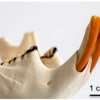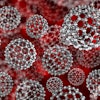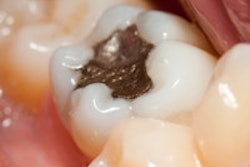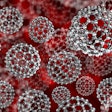A substance similar to the adhesive that mussels use to attach to rocks and other surfaces in water could help prevent tooth sensitivity and help remineralize teeth, according to a new study in ACS Applied Materials & Interfaces (December 2012, Vol. 4:12, pp. 6901-6910).
Three out of every four people worldwide have teeth that are sensitive to hot, cold, sweet, or sour foods and drinks, according to the study authors, from Anhui Medical University and the University of Hong Kong.
While some sugar-free gums and special toothpastes can help reduce tooth hypersensitivity, there is a need for substances that rebuild enamel and dentin at the same time, the researchers noted.
To meet that challenge, they turned to a sticky material similar to the adhesive that mussels use to adhere to surfaces, reasoning that it could help keep minerals in contact with dentin long enough for the rebuilding process to occur.
The researchers coated dopamine on demineralized enamel and dentin surfaces to evaluate the effect of polydopamine coating on dental remineralization. They found that teeth bathed in the sticky material and minerals reformed both dentin and enamel, while teeth bathed only in minerals reformed only enamel.
"Polydopamine coating remarkably promoted demineralized dentin remineralization, and all dentin tubules were occluded by densely packed hydroxyapatite crystals," they concluded. "Thus, coating polydopamine on dental tissue surface may be a simple universal technique to induce enamel and dentin remineralization simultaneously."



















